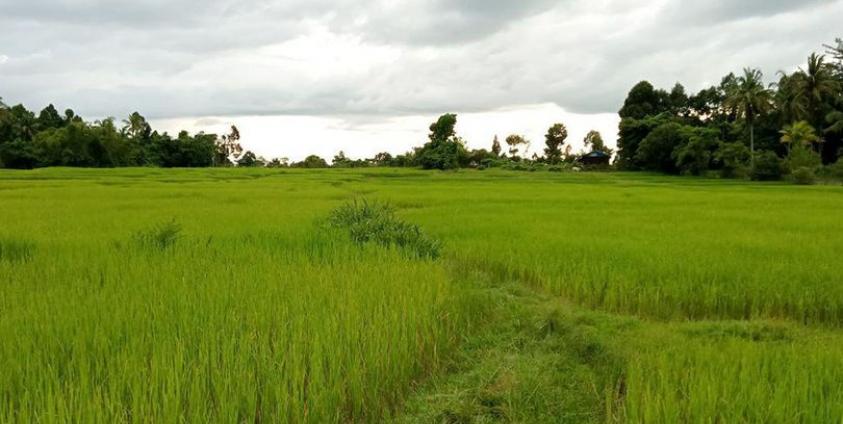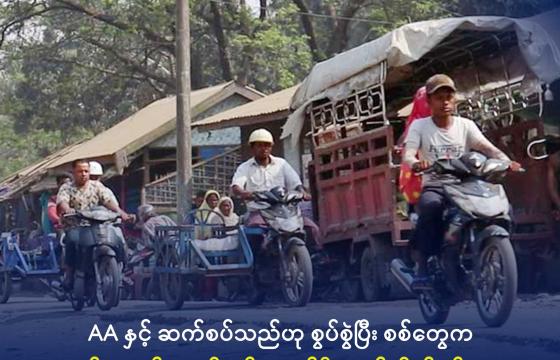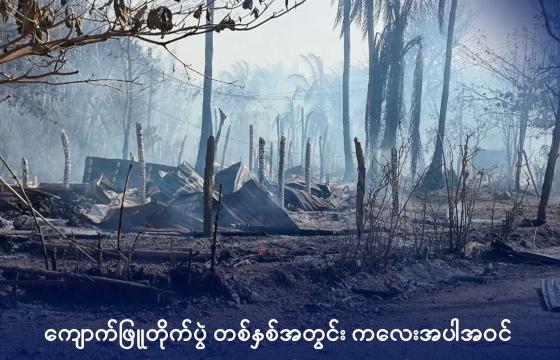Arakan State’s agriculture industry has suffered significant setbacks this year, including an anticipated drop in the state’s rice production, making it necessary to take special care to ensure domestic food security, according to an official from the Arakan Farmers’ Union.
As farmers have faced various difficulties this year, the Arakan Farmers’ Union estimates that the yield per acre will decline.
Domestic rice food security is a matter to be considered and officials need to be careful, said U Aung Kyaw Mya, spokesman for the Arakan Farmers’ Union.
“It is certain that the rice yield will decrease this year. Depending on the condition of the rice production this year, it should be suitable for the local population, and the surplus rice should be carefully checked and sold abroad,” he added.
Some farmers have reduced their sown acreage this year due to steep increases in the price of fertilisers and other higher costs. During the cultivation period, many rice plants were damaged by drought and overexposure to sun and heat.
According to farmers, rice plants were also damaged by saltwater flooding caused by recentstorms, with some rice plants even blown away by attendant strong winds.
Farmer U Tun Than Myint said more than 1,300 acres of paddy farmland in Pauktaw Township’s Thitpokechaung Village were destroyed by the storms.
“In the previous year, everyone had enough rice. But farmers will face livelihood hardships this year due to low paddy yield. The cost of growing rice is huge, and we have worked so hard for the entire rainy season, but now we have lost everything,” he added.
Tens of thousands of acres of paddy fields have reportedly been destroyed by the stormy weather in Pauktaw Township, according to local residents.
“We will not be able to harvest our paddy fields. Three acres of paddy field has been damaged by saltwater. Six acres of paddy fields, which were soon to be harvested, have been destroyed by insects. We will face livelihood difficulties this year,” a local farmer from Ngapyitet Village in Pauktaw Township said.
Seventy-five percent of the rural population in Arakan State is primarily engaged in agriculture. Farmers say that due to the higher cultivation costs, crop damage and other challenges this year, they are not sure if they will be able to repay the agricultural loans that they have taken out.
“We have lost everything we worked hard for this year. We had various difficulties buying a bag of fertilizer. I don’t know how to repay the agricultural loan,” said U Thein Shwe Oo, a farmer from Kanchaung Village in Ponnagyun Township.
There are about 1.2 million acres of arable land in Arakan State, but only some 850,000 acres of farmland could be cultivated this year due to the higher costs of farming, and because some farmers are still unable to return home after being displaced by conflict, according to the Arakan Farmers’ Union.
The union estimates that some 50,000 acres of farmland in Arakan State townships including Buthidaung, Maungdaw and Pauktaw have been abandoned due to renewed fighting, which kicked off in August.
More than 80,000 acres of farmland were destroyed in the townships of Taungup, Myebon, Pauktaw, Ponnagyun and Rathedaung due to the cyclonic storm Sitrang, among which Taungup Township suffered the most damage, according to the Arakan Farmers’ Union.







